Maiduguri, Nigeria (CNN)As night falls, the curfew comes into effect. Nobody is allowed on the streets. Anxiety hangs in the air.
Those unable to make it home before sunset are shepherded to roundabouts to wait until day breaks.
This is Maiduguri -- a city on the edge.
The capital of Borno state, it is at the heart of the Nigerian Army's battle to retake Boko Haram territory. A place where no one is above suspicion. Where young girls, packaged as suicide bombers, are sent by militantsto realize the group's brutal jihad.
Teenagers outside of the city's comparative safety -- like the Chibok girls -- are targeted and snatched away by Boko Haram. Forced into marriage, they enduring years of rape by their self-proclaimed husbands. Then they volunteer to die. The risk of being strapped with a bomb more appealing than remaining in the group's Sambisa Forest stronghold, their personal hell on earth.
And yet, despite the threat of suicide attack, Maidugiri has become a beacon. An oasis in the northeast of Nigeria where a civilian joint task force works to protect its inhabitants. Today an estimated 2.5 million people have been displaced across the northeast of the country and the city's camps has become a haven for over a million people left homeless.
With limited access to health care, clean water and sanitation, the risk of illness is high. The tension is palpable and everyone is on alert.
The Sambisa fortress
The campaign to eradicate Boko Haram and recover the girls, code named "Lafiya Dole" -- meaning "Peace by any means" in Hausa -- is coordinated from Maiduguri. Nigeria's government has been condemned -- with critics both at home and abroad -- for its ineffective response to the mass kidnapping. But it isn't until you come to the region that one truly comprehends the mammoth task placed on the shoulders of the nation's troops.
It has long been thought the Chibok girls were spirited away to the Sambisa Forest -- a dry savannah of harsh terrain.
Originally marked as a game reserve by colonists, it wasoverrun by the Islamic insurgents several years ago. Covered in soft, light sand and brutal, dense bush, it is ideal for burying improvised explosive devices, or IEDs, and shielding militants from prying eyes.
Two years ago, when CNN first visited Chibok after 276 girls were taken from their school dormitory at gunpoint, parents described how they followed their daughters' trail to the edge of the forest. But with danger lurking amid the vegetation, they were unable to go any further.
Since then, soldiers have intensified their efforts, infiltrating the Sambisa fortress, and in the process partially liberating the state from Boko Haram's stranglehold. But the militants still hold territory right in the heart of the forest.
And it is in this area where many believe the Chibok girls are still held.
'We see children's footprints'
In recent days, CNN joined the Nigerian Army as troops patrolled to the east and west of Maiduguri, close to the front line in the Sambisa Forest. The heat was relentless, dehydration an ever-present risk as we canvased a 120-kilometer wide search grid.
We saw village after abandoned village as we journeyed across the country. Carcases of burnt out cars, pockmarked ground and crumbling structures dotted the landscape. What Boko Haram couldn't loot, they burned. Entire towns razed.
We traveled for hours in a heavily armored convoy -- complete with mine-proof trucks carefully directing us from the front. Alongside soldiers, we saw them scouting the difficult terrain, walking long stretches through thick shrubs where camps could be hidden.
Brigadier General B.A. Ragi of the 29th Task Force Brigade laments the paucity of needed equipment, like thermal imaging cameras.
"We rely a lot on the Americans that supply ISR (intelligence surveillance reconnaissance) and give us some form of information as to the clusters of persons on the ground itself."
It's from this intel, says Ragi, that troops then use the most basic of tracking skills to hunt for evidence of people passing through.
"Sometimes we see children's footprints," he says.
Militants 'decimated'
The Nigerian Army is also armed with 30 drones that have been distributed to units. These are deployed while troops are out on patrol and offer early warning to enemy activity.
Ragi says the ISR planes provide an "eye in the sky" that has helped the soldiers immeasurably, directing them to enclaves of Boko Haram captives. But not their target -- the Chibok girls.
Nigeria has been working closely with the United States, running operations based off of air reconnaissance that they have provided. This has led to clearing a significant portion along the east of the forest and some promising wins, says Nigerian Army Maj. Gen. Leo Irabor. He is the theater commander orchestrating the entire campaign back in Maiduguri. Irabor claims over 2,000 women and girls have been rescued in the last several months.
"We do have pockets of the Boko Haram terrorists still left in some places but very largely we've decimated them," he says.
There is a sense among the military that as Boko Haram has lost their territorial footprint, they are regrouping and using asymmetrical tactics, deploying waves of would be suicide bombers -- some successful, some not -- to inflict terror as opposed to the ground assaults they once unleashed. Irabor believes the militant group's current capacity is "limited" and credits his force's recent missions for the halt in attacks.
Just last month, the Nigerian Army captured Boko Haram's camp in Alagarno forest, once considered the group's "spiritual base" in the northeast.
Irabor continues telling CNN that intelligence surrounding the current location of the Chibok girls does, in fact, point to the Sambisa corridor, where his forces continue to advance deeper. But while proud of the accomplishments of his men, he says they need more international support.
"The question of the Chibok girls remains a sore point in our history," he says. "The biometrics -- as it were -- of the Chibok girls are not known to us. Those are the issues which I believe are among the challenges.
"We think, from the intelligence available to us, that the remaining areas that we are working to move into, that is where we are hoping to be able to rescue the Chibok girls."
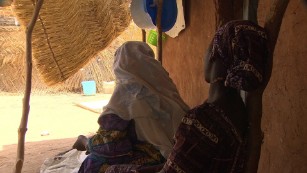
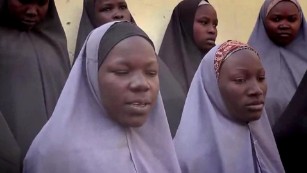
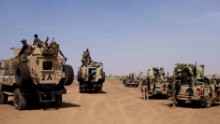




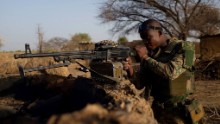
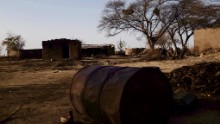
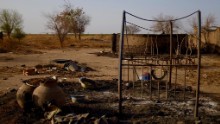
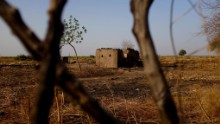

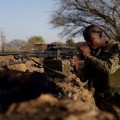
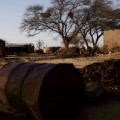
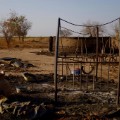
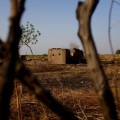
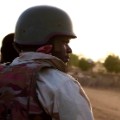
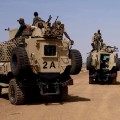
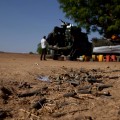

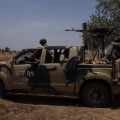


Great work. Truly speaking I never seen a blog like that. Absolutely superb work. Good luck. Thanks for such an informative post. For more information visit legal empire for sale
ReplyDelete